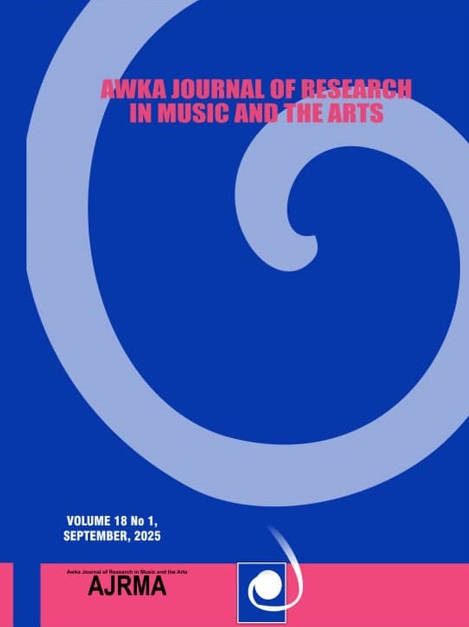MUSIC IN IGBO TRADITIONAL MARRIAGE CEREMONY: A CASE OF EGWU-NNEOGBO IN UGWULANGWU COMMUNITY, EBONYI STATE, NIGERIA
Abstract
This paper examines the roles of music in traditional marriage ceremonies within the Ugwulangwu community of Ebonyi State, Nigeria. Focusing on the Igbo cultural context, the study investigates how music shapes ritual practices, conveys cultural values, and fosters social cohesion. Drawing on ethnographic methods, including field interviews and participant observation, the research explores the contribution of the community's vocal music tradition to each phase of their traditional marriage ceremony. The findings reveal that music in Ugwulangwu serves multifaceted functions: it facilitates communication, affirms communal identity, and ritualizes the transitions associated with marriage. It extends beyond entertainment to reinforce moral values and enact ritual processes. The study also highlights music's role in intergenerational knowledge transfer and its resilience amid social change. By situating music as a central element in ceremonial life, the paper underscores its enduring significance in the preservation and performance of Igbo cultural heritage.

